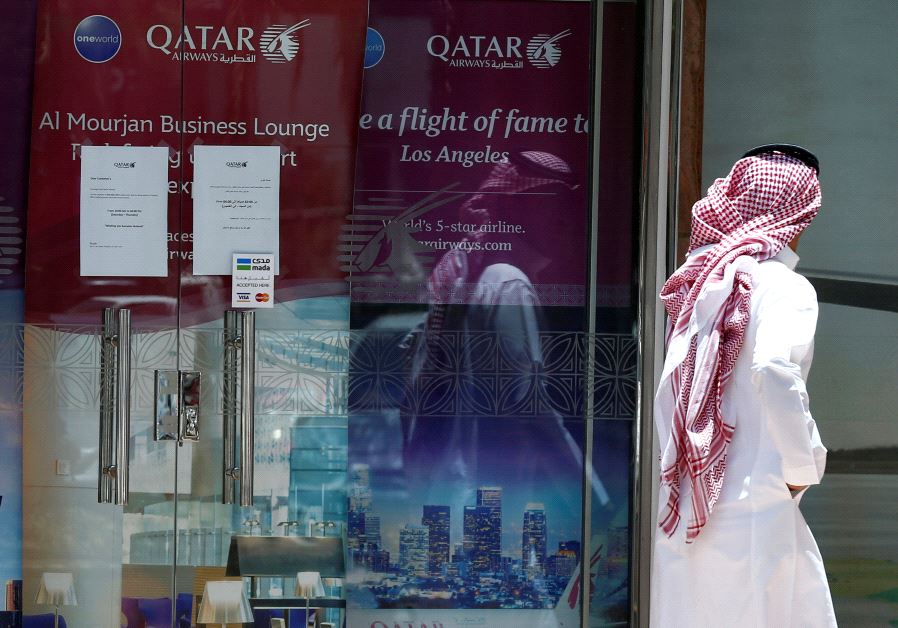Analysis: Saudis seek hegemony in showdown with Qatar
Riyadh is livid that Doha does not toe its stridently anti-Iranian line and has demanded that it cease support for the Muslim Brotherhood and Hamas.
 A man walks past Qatar Airways office in Riyadh, Saudi Arabia, June 5, 2017Updated:
A man walks past Qatar Airways office in Riyadh, Saudi Arabia, June 5, 2017Updated: